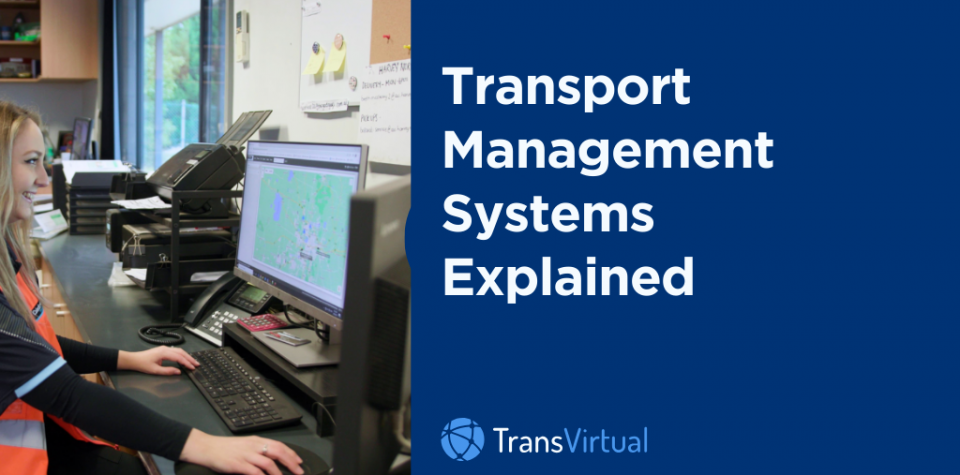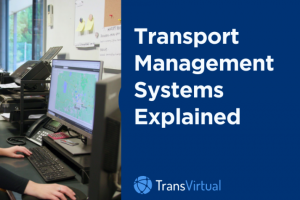Table of Contents
Transportation is one of the key processes in the supply chain. It consists of various activities, from planning deliveries to issuing invoices.
Most, if not all, companies strive to maximize profitability through proper logistics management. This involves hiring a team of experts and employing a transportation management solution to automate tasks for you.
In this article, we’ll explore transportation management systems and how they address the many logistical challenges that businesses face today.
What is a Transportation Management System (TMS)?
For small businesses with few shipments, managing transport operations can be done the old-fashioned way: using spreadsheets and phone calls.
But as you grow, manual task management is no longer feasible. Not to mention, keeping track of thousands of manual paperwork becomes time and resource exhaustive. And to track shipments manually? Impossible!
That’s where TMS Software come into play.
Transportation (or transport) management systems or TMS are a type of specialized software that aids in the planning and movement of goods. It’s generally designed to increase the efficiency of transport operations while guaranteeing on-time delivery.
What is the Difference Between TMS Software and a Warehouse Management System?
Both TMS solutions and warehouse management systems play a critical role in supply chain management. They serve different functions but work together to ensure the efficient flow of goods.
As their names imply, a warehouse management system streamlines the storage, movement, and handling of goods within a warehouse. Think inventory management and receiving processes.
A transportation management system, on the other hand, is used to plan, execute, and optimize the physical movement of goods. Simply put, it’s there to help you manage transportation operations. Features include route planning and optimization, carrier management, freight management and freight billing, and performance metrics.
Who Needs Transportation Management Software?
TMS solutions are essential for professionals in the logistics and supply chain industry. But they can also extend to businesses from several sectors, including:
Manufacturers
Distributors
Retailers and eCommerce companies
Logistics service providers
What are the Key Features of a Transportation Management System?
1. Real-time tracking and visibility
Modern TMS software should offer track and trace features, ensuring comprehensive visibility in every step of the shipment process.
A transportation management system should also seamlessly integrate with different carriers, trucking companies, or other delivery services for easy order management. These integrations also allow seamless shipment tracking and invoicing without the need for constant human intervention.
Speaking of, leveraging modern tech such as GPS devices and mobile barcodes allows businesses to monitor their shipment’s whereabouts and condition.
In addition to real time visibility, a modern transportation management system should provide advanced analytics, business intelligence, and reporting capabilities. Businesses can then leverage historical transportation data to identify trends and improve delivery performance.
2. Powerful planning features
Transportation planning is vital to any successful logistics strategy. A good plan helps you maximize resources, avoid bottlenecks, and enhances safety and compliance.
That said, TMS software should be equipped with planning features such as:
Load planning: A TMS intelligently allocates shipments to available vehicles or drivers, considering their capacity and schedules. This feature ensures that you are maximizing your fleet while also minimizing costs.
Route optimization and planning: Dynamic route planning customizes delivery routes and stops for specific customers and orders. The system analyses factors such as delivery locations, order volumes, and time windows to ensure efficiency and accuracy.
A transportation management system should help you reduce costs through reliable planning features. Optimizing routes and load capacity lowers fuel consumption, fewer road tolls, and faster deliveries.
3. Integration capabilities
Siloed information is enough to devastate transport operations. You need to ensure your platforms can talk – or integrate – with one another.
For example, integrating your TMS software with accounting systems expedites invoicing, transforming time-consuming and messy paper trails into efficient billing processes. This accelerates the order to cash process, consequently improving cash flow.
4. Document management
A transportation management system digitizes essential documents such as proof of delivery, invoices, manifests, and your bill of lading.
Managing these documents digitally streamlines compliance and allows for better safekeeping and auditing.
Cloud-Based Transportation Management Systems
A cloud-based TMS provides value to an already robust system. They deliver the same benefits as other cloud solutions, including scalability, cost efficiency, and faster ROI.
What’s more, cloud based TMS offer improved business continuity with backups stored in geographically dispersed data centers. This protects your data in case of natural disasters, hardware failures, and other unforeseen events.
Choosing the Best Transportation Management System for Your Business
With numerous options available, selecting the best transportation management system can be daunting. Each choice offers its own unique value and benefits.
So, when weighing TMS options, make sure you consider the following:
The problems you want to solve
Analyze your logistics procedures – look for bottlenecks and opportunities to improve. From here, create a list of features and capabilities that could resolve them. This could include seamless carrier management, route planning and optimization, or integration capabilities.
The easier to onboard, the better
The effectiveness of your TMS lies within user satisfaction and adoption rates. Users are naturally resistant to complicated systems, impeding a successful implementation.
Prioritize a TMS that’s intuitive and requires a lesser learning curve. Before selecting a system, schedule a demo, seek customer feedback, or review their training materials.
Configurability and scalability
Any system that adapts and grows along with your business is worth the investment. Your company isn’t going to stay in one place. Your needs will shift, trends will change, and your business will scale.
That said, cloud-based transport management systems are the best option for you. They offer scalability without the need to constantly change hardware.
Data security and compliance
Your business will likely store thousands of customer and business data in your system. The act of delivering products alone involves handling sensitive and private information such as contact details and addresses.
So, make sure you check the vendor’s track record or data security. Look for security certifications, backup and recovery procedures, audit trails, and terms of data ownership.
The Future Outlook for Transportation Management Systems
Juggling logistics processes, customers, and multiple shipments is no easy task. The demand for fast and more efficient deliveries only add pressure to the transportation market.
For the most part, shippers and carriers need to abandon traditional processes to compete and stay afloat.
Transport management systems are readily available, offering efficient communication, algorithms, and even mobile access to keep teams and customers connected. There are also many innovations in the market – from developing IoT devices to even blockchain technology.
As technology advances alongside the transportation sector, leveraging software solutions presents opportunities to automate business operations, enhance customer service, and attain a competitive edge.
Ready to experience an innovative TMS? Look no further than TransVirtual. Our cloud-based TMS helps you achieve operational efficiency while also bring costs down. Talk to an expert today to learn more.


